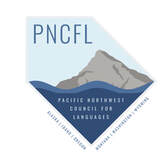|
Happy December, MALT members! I hope that all of you found some time to relax and enjoy friends and family during the Thanksgiving holiday, and reflect on those things for which we are grateful. I am personally very thankful for the talented, dedicated, and hard-working MALT Board members who are serving with me. I am also thankful for those former members who advocated for our organization in the past, showing us the importance of collaboration and building relationships. I am especially grateful for all of the hard work that Sara Buley and her colleagues in Great Falls are contributing toward our upcoming Spring Conference, and for all of our members across this state who are showing our students the importance of world languages on a daily basis. Please know that what you do is important. Your hard work and dedication do not go unnoticed.
Last month when I wrote about some of the goals we have as a board, I mentioned achieving a Seal of Biliteracy for our state. If you are not sure exactly what this is, don’t feel like you are alone. The first time I heard of it was in Missoula during a presentation by Megan Hambrick where she discussed her experiences at the Leadership Initiative for Language Learning (LILL) conference this past summer. All LILL participants agree to a two-year commitment, and they must choose a personal action plan for their state. Megan’s action plan is to pursue the Seal of Biliteracy in Montana, and the MALT board has agreed that this is an important endeavor. But, what exactly is a Seal of Biliteracy and why is it important to us as language teachers in Montana? This seal would be an official stamp on the diplomas of our graduates signalling that they have achieved a certain level of fluency in their respective language(s). According to the Seal of Biliteracy website, the Seal, “ . . .is an award given by a school, district, or state in recognition of students who have studied and attained proficiency in two or more languages by high school graduation.” As we work toward proficiency in our classrooms, this seems like it should be a logical step. Twenty-eight states have already adopted the seal with California being the first in 2011, and Texas, Illinois and New York adopting the seal in 2013. Fourteen other states are currently in varying stages of verification. Montana is one of only eight states that are not currently working toward this goal. If you are interested in visiting the official site you can find it at: http://sealofbiliteracy.org/ Why is this goal important for our students? According to the website, the Seal “ . . .encourages students to pursue biliteracy, honors the skills our students attain, and can be evidence of skills that are attractive to future employers and college admissions offices.” Many of us already teach Advanced Placement classes or International Baccalaureate programs where our most advanced students have an opportunity to earn college credit and save tuition dollars through a testing program. The Seal of Biliteracy would also allow acknowledgement for our students who elect to join the work-force immediately after high school, and would signal to their employers that the individual has a skill that is desirable in a modern society. An added bonus is that the Seal of Biliteracy could also be achieved by our Native American students who are fluent in their heritage language(s). One of our first steps forward will be clarifying why we feel that the seal of biliteracy would be important to our students. The Los Angeles Unified School District crafted the following statement to explain the rationale behind this award: “Biliteracy awards advance the district’s commitment that every student graduates prepared and equipped with the knowledge and skills to participate successfully in college, career, and a diverse 21st century society. Additionally, the awards build upon the rich linguistic and cultural assets of the district and communicate that mastery of two or more languages is an important skill that is advantageous in an ever shrinking global society.” It is possible that our own statement of purpose will reflect some of the values that make Montana uniquely different from California, but overall, our end goals are the same; we hope to acknowledge the achievements of our students as they worked becoming bilingual global citizens. If you would like more information on the process, please go to: http://sealofbiliteracy.org/, and we will keep you posted on our progress. Merry Christmas! Feliz Navidad! Frohe Wiehnacht! Joyeux Noël! Felicem Natalem Christi! - Alice Nation, MALT President
1 Comment
|
|
All photographs have been generously provided by our members. Or are sourced from Weebly.
|
Proudly powered by Weebly
|
 RSS Feed
RSS Feed


